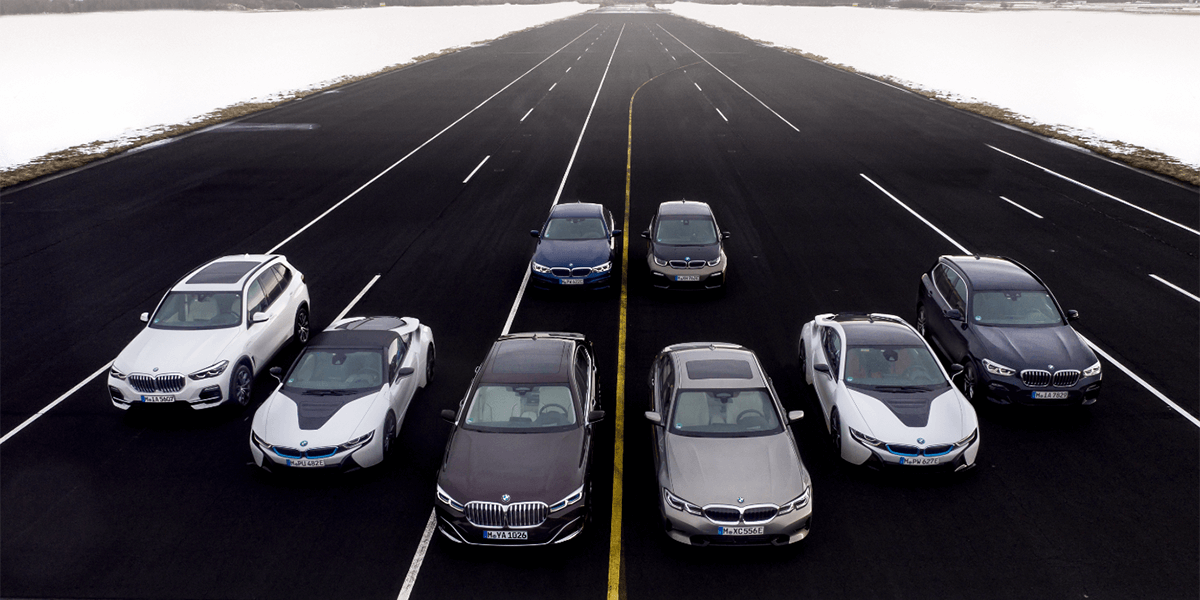BMW plays up PHEV ambitions in Geneva
As announced, BMW is now presenting the second generation PHEV models of their 7 Series, the X5 and the 3 Series Sedan at the Geneva Motor Show. The manufacturer also announces that the BMW X3 will also be produced in a plug-in hybrid version from December 2019.
The X3 will thus be the brand’s first model to be offered in three versions from 2020: as a conventional combustion engine; and with a plug-in hybrid system; as well as with a purely electric drive.
As far as the PHEV version of the X3 is concerned, BMW now publishes the following performance data: The electric motor couples with a four-cylinder engine and an eight-speed gearbox to achieve a total output of 185 kW, which can be increased by 30 kW at peak times by making full use of the electric motor. A battery installed under the rear seat is intended to provide a purely electric range of 50 km. The plug-in hybrid can accelerate to 100 km/h in 6.5 seconds.
Just a few metres away in Geneva, BMW is already presenting the second generation of plug-in hybrid models in three vehicle segments. For example, the new BMW 330e sedan now has an electric range of up to 60 km after WLTP that has been increased by around 50 per cent. Its drive power also amounts to 185 kW with a corresponding 30 kW boost potential, which makes acceleration from 0 to 100 km/h possible in 6 seconds.
The second PHEV generation of the all-wheel-drive BMW X5 now achieves 290 kW through the use of an adapted combustion engine and acceleration to 100 km/h in 5.6 seconds. The BMW X5 is a four-wheel-drive vehicle with a powerful engine with a power output of 290 kW. But much more importantly: “With an electric range of around 80 kilometres, the value of the predecessor model is almost tripled,” says BMW.
The electric range of the BMW 7 Series has also been increased by almost 30 per cent to between 50 and 58 kilometres compared to the predecessor models. Also now available are the BMW 745e, the long version BMW 745Le and the BMW 745Le xDrive with an extended wheelbase and all-wheel drive. Like the X5, they also have the aforementioned modified combustion engines, so that total output of 290 kW is now also included.
Last but not least, BMW announces that better cell technology has also resulted in higher electric ranges in the plug-in hybrid models of the BMW 5 Series and the BMW 2 Series. “With unchanged dimensions, the new lithium-ion battery for the plug-in hybrid model of the BMW 5 Series Sedan has an increased gross energy content from 9.2 to 12.0 kWh,” calculates the carmaker. This increases the electric range by more than 30 per cent to up to 64 kilometres. For July, BMW is also announcing an all-wheel-drive version of the BMW 530e xDrive sedan, which will have an electric range of 57 km. And finally, the BMW 225xe Active Tourer will reach an electric range of 57 km thanks to innovative cell technology, which corresponds to an increase of more than 25 per cent. This is guaranteed by an increase in capacity from 7.7 to 9.7 kWh for the same battery size.
The PHEV lineup shown in Geneva underlines BMW’s ambition to score points in this area in particular with a large variety of premium vehicles. By the end of the year, the Munich-based company plans to have twelve models with an electrified drive on the market and more than half a million electrified vehicles on the roads worldwide.


0 Comments